With fewer than 1,000 visitors annually, Equatorial Guinea remains one of the world’s most uncharted destinations. The country’s strict visa requirements have inadvertently preserved its natural beauty, making it a pristine haven for those seeking an untouched travel experience.
You are about to explore a land of unique wildlife and diverse cultural experiences. From the volcanic landscapes of Bioko Island to the emerging capital of Oyala, Equatorial Guinea offers a rare opportunity to witness unspoiled natural beauty and rich cultural heritage.
This guide will take you through the top attractions and activities, highlighting both the natural wonders and cultural experiences that make this country an extraordinary destination for adventure seekers and cultural explorers alike.
Discovering Equatorial Guinea: Africa’s Hidden Gem
In the heart of Africa lies Equatorial Guinea, a gem waiting to be unearthed. This country is a treasure trove of natural beauty and biodiversity, with dense rainforests teeming with gorillas, chimpanzees, and forest elephants.
Equatorial Guinea consists of a mainland region, Rio Muni, and several islands, including Bioko, where the capital, Malabo, is located. The country’s diverse landscapes offer a unique adventure for travelers, from the mist-topped Monte Alén peaks to the pristine beaches of Ureca.
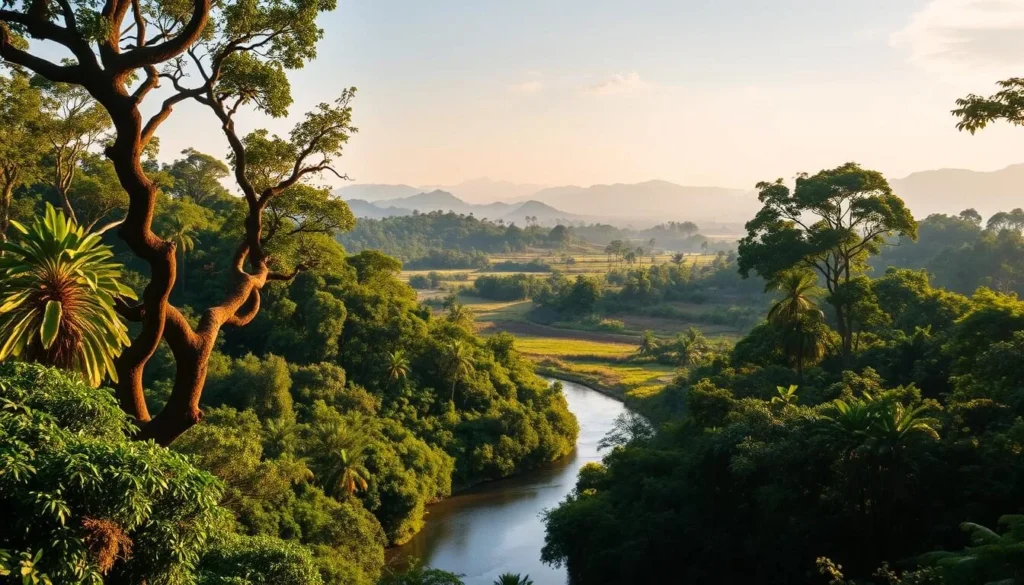
| Region | Main Attractions |
|---|---|
| Rio Muni | Dense rainforests, Monte Alén peaks |
| Bioko Island | Malabo capital, pristine beaches, calderas |
As you explore this place, you’ll discover a blend of African, Spanish, and indigenous cultures that shape the country’s identity. With its rich cultural heritage and untouched natural landscapes, Equatorial Guinea is an adventure waiting to happen.
Bioko Island: Natural Paradise in the Gulf of Guinea
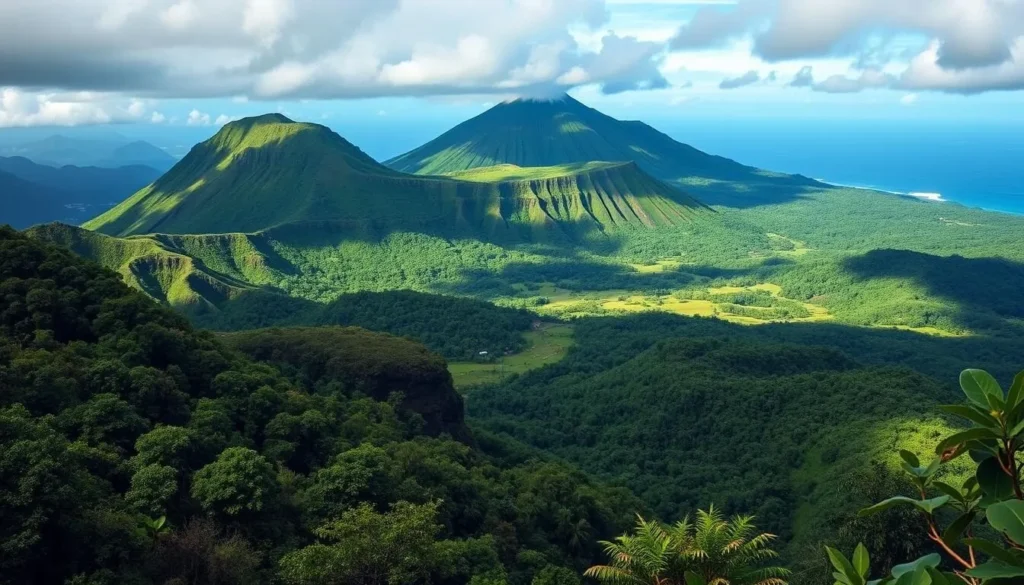
Bioko Island is a hidden gem in the Gulf of Guinea, offering a unique blend of natural beauty and cultural experiences. As part of Equatorial Guinea, it boasts diverse landscapes, from lush rainforests to volcanic mountains.
Malabo: Exploring the Current Capital
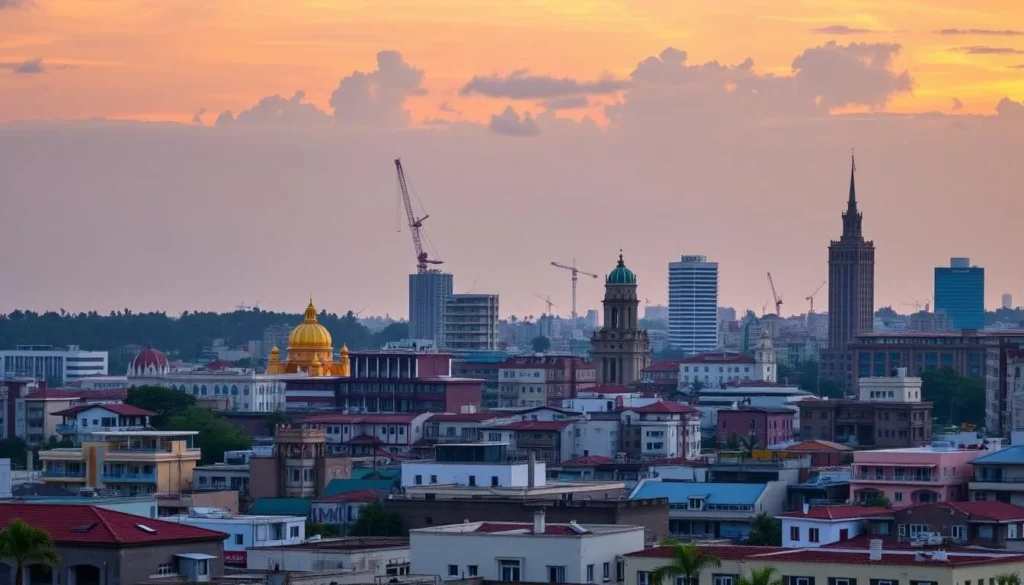
Malabo, the capital city of Equatorial Guinea, is located on Bioko Island. You can explore the city’s vibrant markets, historic landmarks, and enjoy the local cuisine. The city’s colonial past is reflected in its architecture, with buildings like the Santa Isabel Cathedral being must-visit attractions.
Pico Basilé: Climbing the Highest Peak
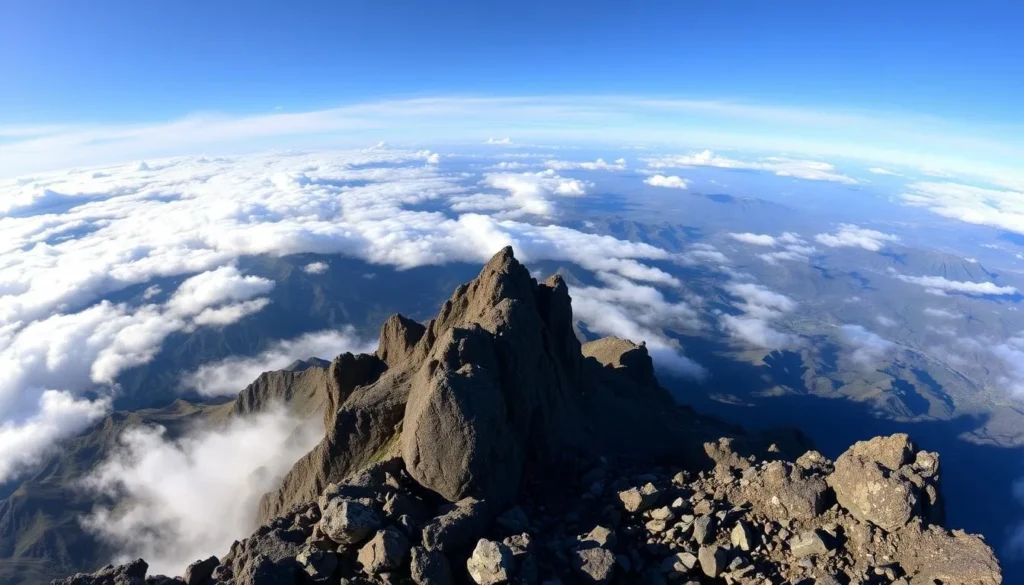
Pico Basilé, the highest peak in Equatorial Guinea, offers an exhilarating adventure experience. Climbing to the summit rewards you with breathtaking views of Malabo, the Atlantic Ocean, and on clear days, even Mount Cameroon. Be prepared for changing weather conditions, as the peak is often shrouded in clouds.
Ureca Beach: Pristine Shores and Turtle Conservation
Located on the southern coast of Bioko Island, Ureca Beach is renowned for its stunning natural beauty and wildlife conservation.
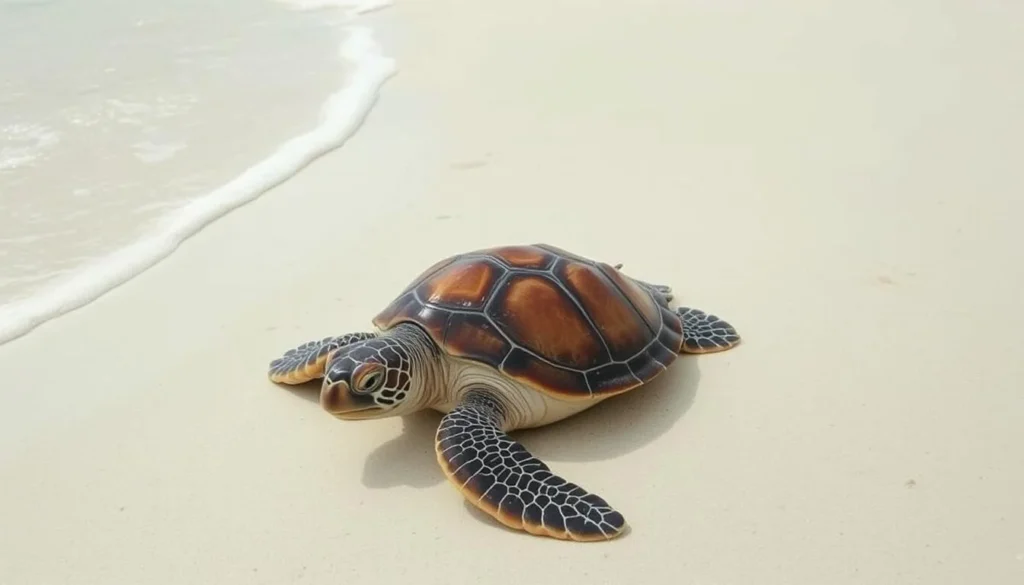
Ureca Beach is surrounded by thick rainforests and dramatic waterfalls, making it an ideal destination for nature enthusiasts. The area offers more than just beautiful beaches; it features a network of stunning waterfalls cascading from the rainforest-covered mountains.
Sea Turtle Nesting Experience
Ureca Beach is a critical nesting site for sea turtles. Visitors can witness these gentle creatures laying their eggs under the cover of night, making for an unforgettable experience.
Waterfalls and Lagoons of Ureca
The area is characterized by its numerous waterfalls and lagoons, creating a picturesque landscape. Exploring Ureca involves adventurous swimming and river fording, offering an exciting expedition through pristine natural environments.
The combination of black sand beaches, emerald rainforests, and crystal-clear waterfalls adds to the untouched beauty of Ureca, making it one of Equatorial Guinea’s most photogenic destinations.
Monte Alen National Park: Wildlife Wonderland
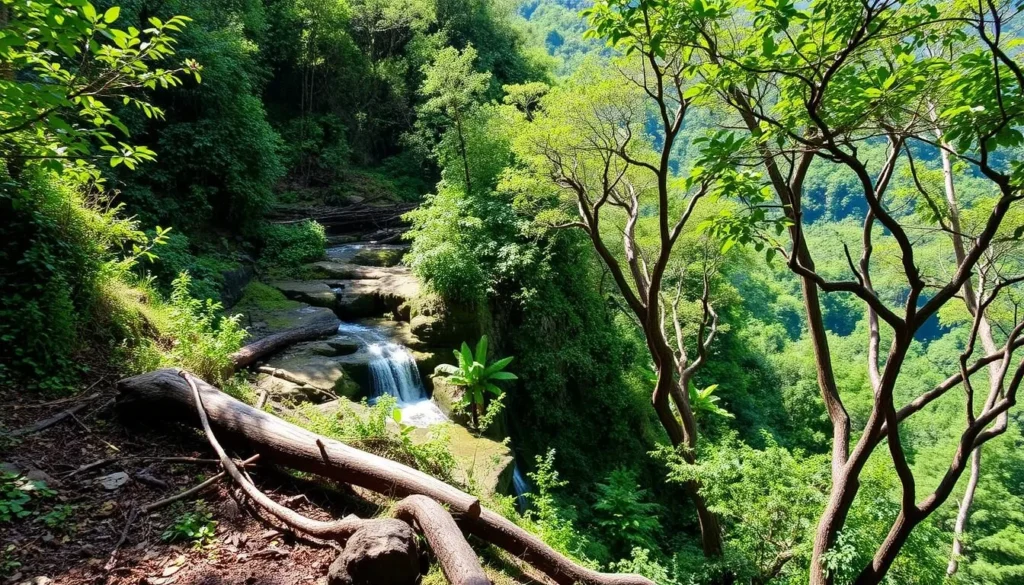
Nestled in the heart of Equatorial Guinea, Monte Alen National Park is a wildlife wonderland waiting to be explored. The park’s humid rainforests and the gushing courses of the Uoro River offer an off-the-beaten-track experience that rewards visitors with empty trekking trails and personal safari packages.
Primate Watching and Jungle Treks
Monte Alen National Park is renowned for its diverse primate species and lush jungle environment. Visitors can embark on guided treks to spot these fascinating creatures in their natural habitat. The park’s dense forests are home to a wide range of primates, offering a unique opportunity for primate watching.
River Adventures in Monte Alen
You can enhance your Monte Alen experience with adventures along the Uoro River, which winds through the heart of the national park. River excursions offer a different perspective on the forest ecosystem and increase your chances of spotting wildlife coming to drink at the water’s edge. Depending on water levels, activities range from gentle canoe trips to more adventurous rafting experiences through sections of rapids.
Oyala: Exploring Equatorial Guinea’s Planned Capital
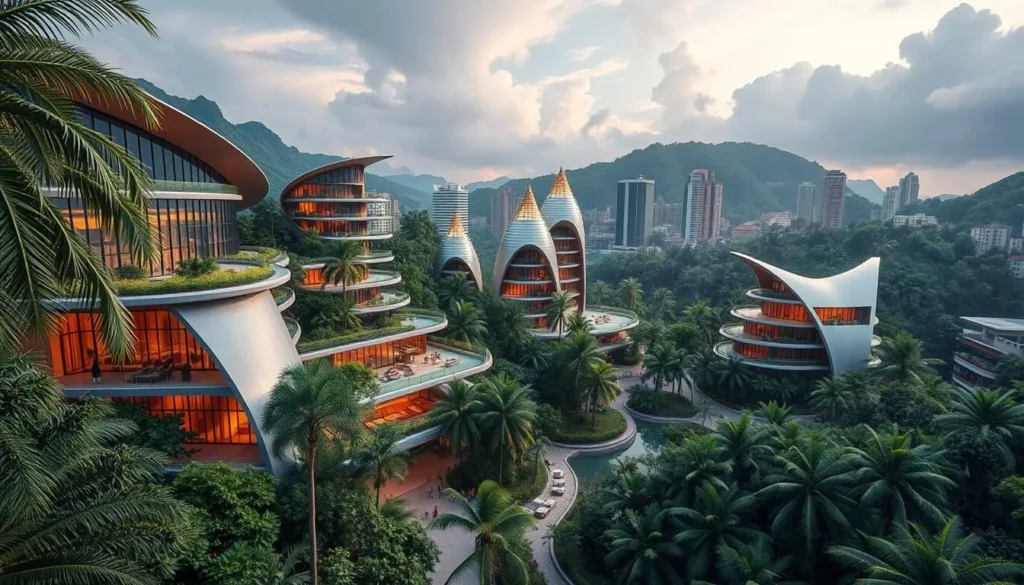
Oyala, the planned capital of Equatorial Guinea, is a testament to modern urban planning amidst a lush jungle. As you explore this city, you’ll be struck by its bold architectural vision and the ambitious scale of its infrastructure projects. The city’s design is a blend of international influences and nods to African heritage, reflecting the country’s rich cultural identity.
Modern Architecture and Development Projects
The city features wide boulevards, bridges, and public spaces designed to accommodate a future population. Oyala’s infrastructure development is a key aspect of its modern architecture, with government buildings and educational facilities that are state-of-the-art. As you visit the university campus, you’ll notice the emphasis on creating institutions that will elevate Equatorial Guinea’s academic standing.
The ongoing construction projects throughout the city provide insight into the challenges of building a new capital from scratch in a remote jungle location. Despite being incomplete, Oyala’s existing structures showcase the country’s ambitions, with facilities that contrast sharply with the surrounding natural environment.
- You’ll be struck by Oyala’s bold architectural vision that blends international design influences with nods to African heritage.
- The city’s infrastructure features wide boulevards, bridges, and public spaces designed to accommodate a future population much larger than its current size.
- As you explore the university campus, you’ll find state-of-the-art educational facilities intended to elevate Equatorial Guinea’s academic standing.
- The ongoing construction projects throughout the city provide insight into the challenges of building a new capital from scratch in a remote jungle location.
- Despite being incomplete, Oyala’s existing structures showcase the country’s oil wealth and ambitions, with government buildings and facilities that contrast sharply with the surrounding natural environment.
Grand Hotel Djibloho: Luxury in the Jungle
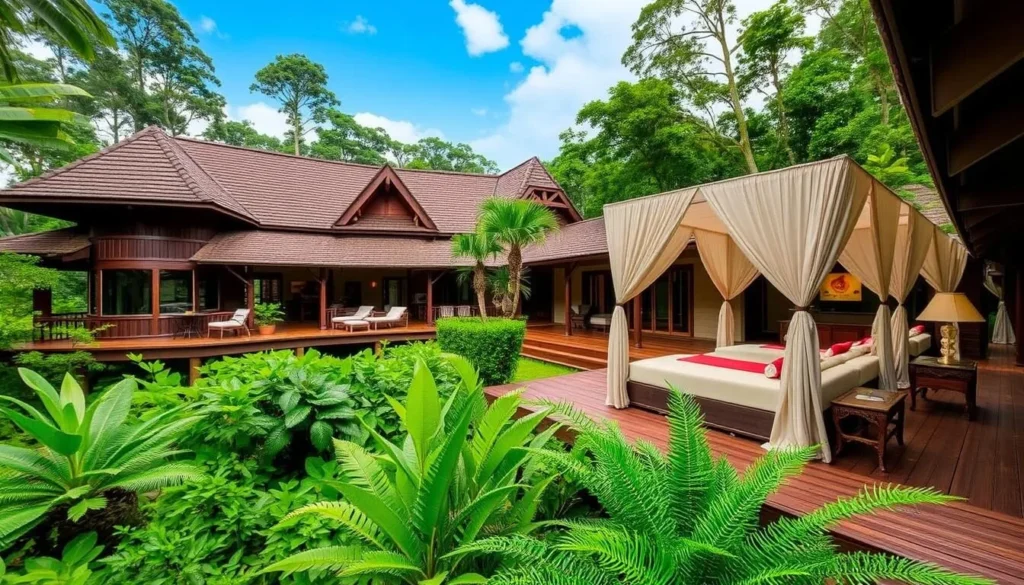
Nestled in the heart of Equatorial Guinea’s lush jungle, Grand Hotel Djibloho offers a luxurious retreat like no other. You can indulge in the ultimate getaway, surrounded by the sights and sounds of nature.
The Unique Chimpanzee Experience
One of the hotel’s most extraordinary features is its wildlife encounter – the on-site chimpanzees. You can observe and sometimes interact with these fascinating creatures, making for a memorable day.
- Unique Wildlife Encounter: Experience a truly unique wildlife encounter at Grand Hotel Djibloho with its on-site chimpanzees.
- Observation Opportunities: The chimpanzees roam freely around designated areas, creating opportunities for observation and insight into their behavior.
- Conservation Efforts: The hotel’s chimpanzee program offers educational components about conservation efforts for these endangered primates.
Bata: Discovering the Mainland’s Largest City
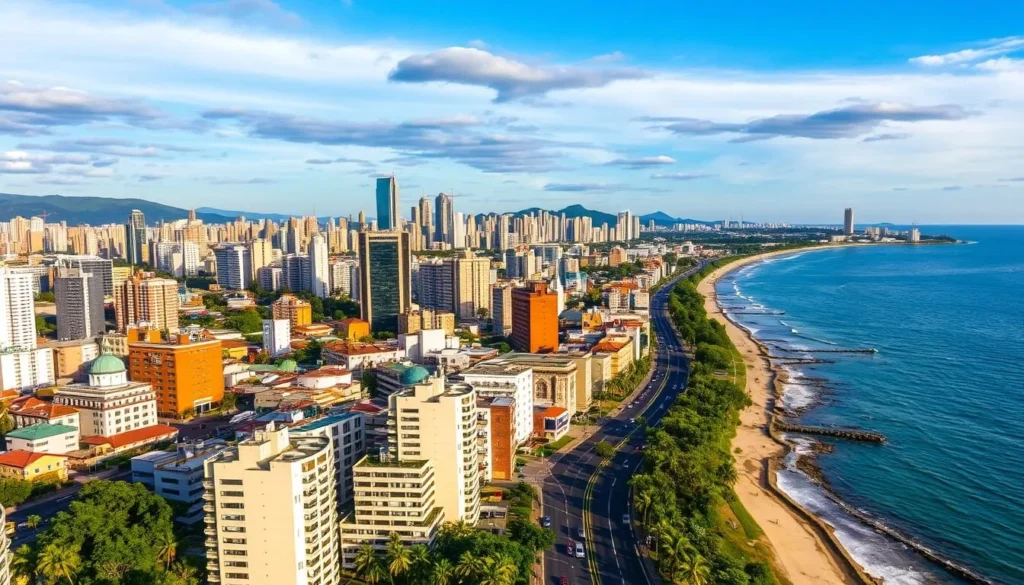
Bata, situated along the Atlantic coast, is Equatorial Guinea’s economic and transportation hub, offering a unique blend of cultural experiences and scenic beauty. As the largest city on the mainland, Bata provides a fascinating glimpse into local life and commerce.
The city’s vibrant markets are a must-visit, where you can see locals trading everything from fresh produce to handcrafted items. The Malecón de Bata, a picturesque seaside promenade, offers pleasant walks with ocean views and serves as a social gathering place, especially in the evenings.
As a former capital city of Equatorial Guinea, Bata retains historical significance while functioning as the gateway to mainland attractions like Monte Alen National Park. Your visit to Bata will complement your stay in Oyala, offering insights into the everyday life of local communities and the country’s rich cultural heritage.
Luba: Gateway to Natural Wonders
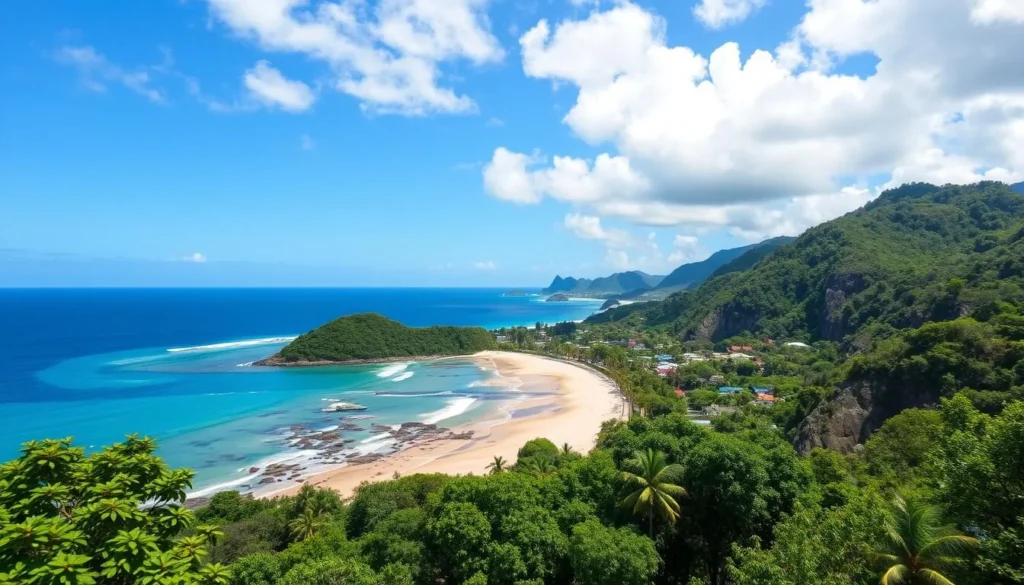
Luba, a charming town on Bioko Island, is your gateway to Equatorial Guinea’s most breathtaking natural attractions. As the second-largest town on the island, Luba offers a unique blend of culture and adventure. Historically, it was a key port for trade, and today it remains important for fishing and commerce.
The town is surrounded by lush jungle and is close to stunning beaches, most notably Arena Blanca (White Sand), known for its seasonal butterfly migrations. Luba serves as a starting point for expeditions to Ureca Beach and the southern coast, making it a strategic stop on your Bioko Island itinerary.
You’ll discover local game at the market near the Ureca turnoff, giving you a glimpse into traditional commerce in this part of Equatorial Guinea. With its beautiful coastline and access to eco-tourism hotspots, Luba is evolving into a hub for adventure travel.
Moca Valley: Cascades and Crater Lakes
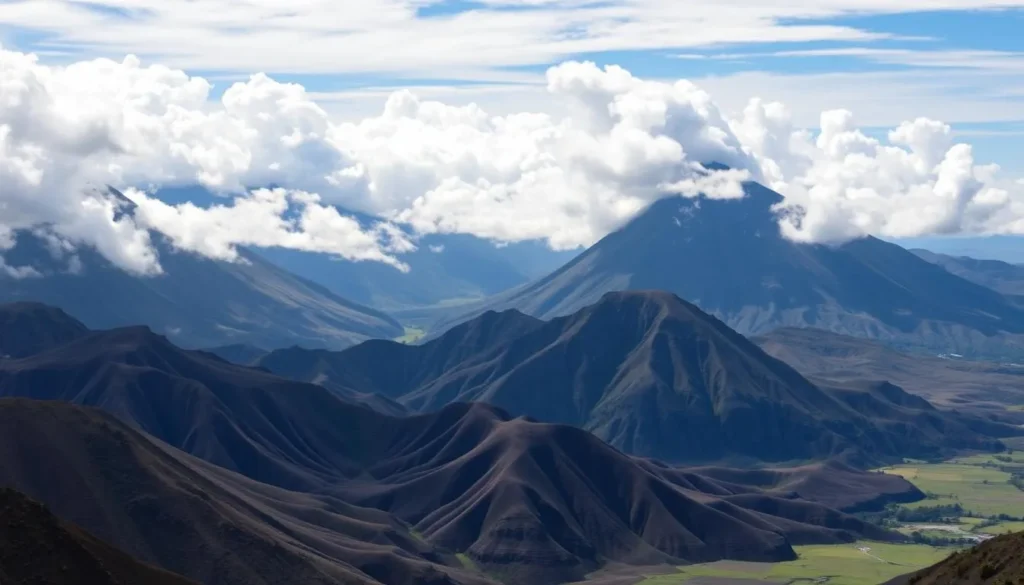
Explore the breathtaking Moca Valley, a hidden gem in Equatorial Guinea’s southern Bioko Island. You’ll be captivated by the dramatic landscape of rugged volcanic ridges and cloud-topped peaks. The valley is home to the Buki tribe and offers some of Equatorial Guinea’s most rewarding hiking experiences to cascading waterfalls and crater lakes.
The lakes, such as Biao and Loreta, are formed in ancient volcanic calderas and showcase stunning blue waters surrounded by dense rainforest, creating scenes of remarkable natural beauty. To make the most of your visit, be sure to wear good boots and bring rain gear, as the trails can be extremely muddy and wet.
With proper preparation, you’ll have the opportunity to spot wildlife like colorful birds, primates, and other forest animals that inhabit this relatively untouched ecosystem in Equatorial Guinea.
Equatorial Guinea: Best Things to Do for Wildlife Enthusiasts
Wildlife enthusiasts will find Equatorial Guinea to be a treasure trove of experiences, from bird watching to primate conservation projects. The country’s diverse ecosystems support a wide range of species, making it an ideal destination for those passionate about wildlife.
Bird Watching Hotspots
Equatorial Guinea is a bird watcher’s paradise, with numerous hotspots across the country. The lush forests and varied landscapes provide habitats for a vast array of bird species. Visitors can explore these areas to spot some of the unique and endemic birdlife.
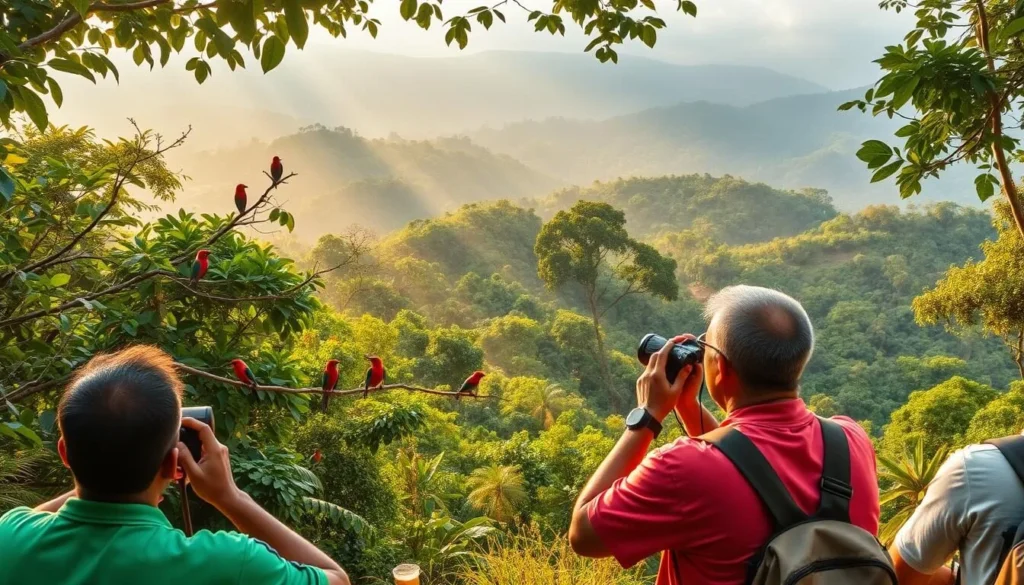
Primate Conservation Projects
The country is home to several primate conservation initiatives, offering visitors the chance to learn about and support these efforts. Programs like the Bioko Biodiversity Protection Program work to protect the island’s seven primate species, including the critically endangered Pennant’s red colobus and Preuss’s monkey. By participating in or visiting these projects, you gain insight into the challenges facing primate conservation in Central Africa.
Annobón Island: Remote Atlantic Paradise
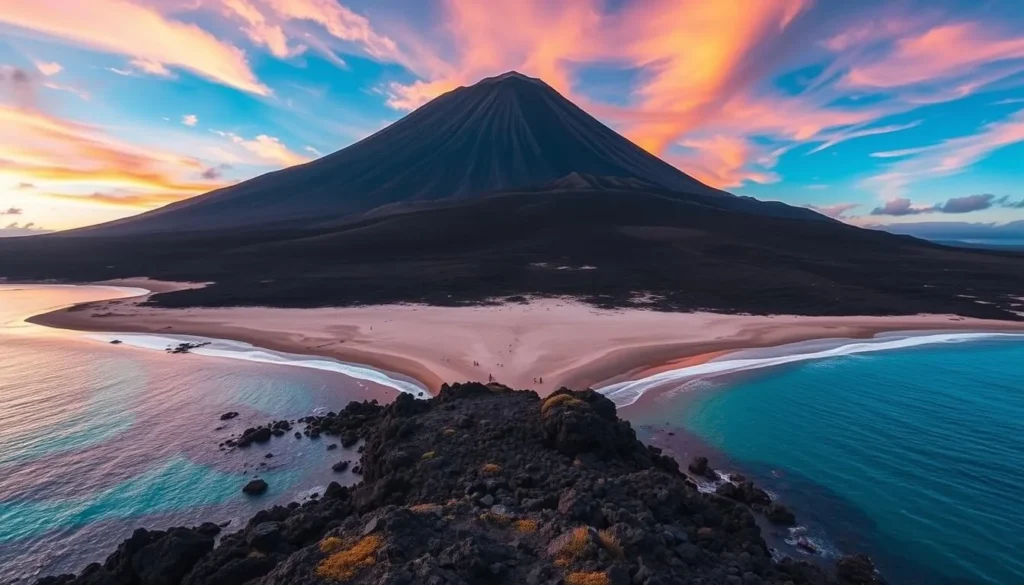
Annobón Island, a volcanic paradise, is Equatorial Guinea’s most remote destination. Located 350 kilometers from the mainland in the Atlantic Ocean, this island is a true adventure for those seeking off-the-beaten-path experiences.
The island’s isolation has preserved both its natural environment and unique cultural identity, including the distinctive Annobonese Creole language influenced by Portuguese and Bantu languages. You can explore the island’s beaches, volcanic landscapes, and the small capital of San Antonio de Pale with its blend of Portuguese and Spanish colonial influences.
Reaching Annobón requires determination and flexibility, as there’s no airport and boat services are infrequent. Once there, wildlife enthusiasts will appreciate opportunities to spot humpback whales in the surrounding waters, unique bird species on the cliffs, and diverse marine life while snorkeling or diving.
Cultural Experiences and Local Traditions
As you explore Equatorial Guinea, you’ll discover a rich tapestry of cultural experiences that reflect the country’s diverse heritage. The locals take great pride in their traditions, which are an integral part of daily life.
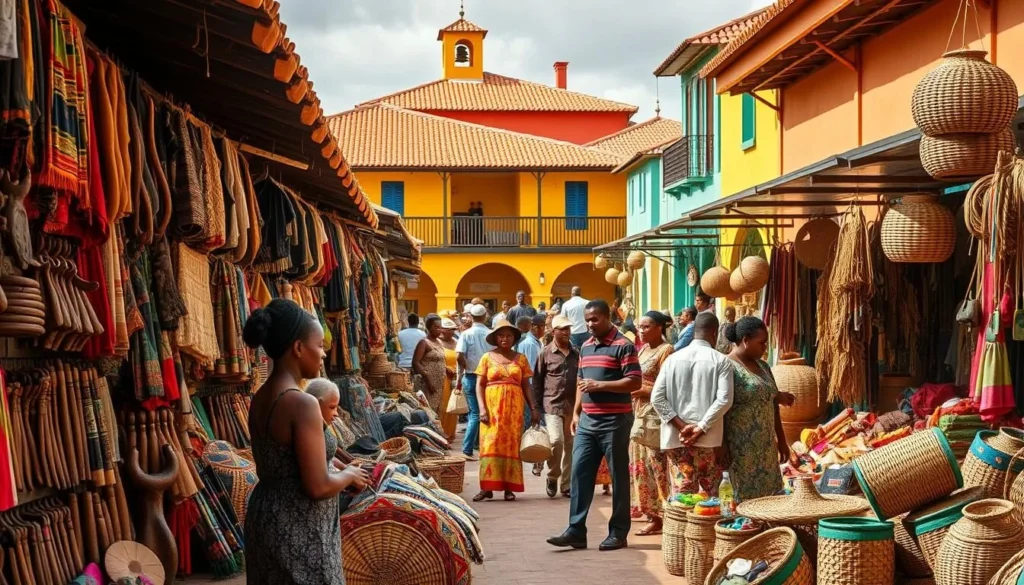
Traditional Equatoguinean Festivals
Equatorial Guinea is known for its vibrant festivals, which showcase the country’s cultural diversity. Travelers can experience the energy of these events, which often feature traditional music, dance, and local cuisine. For instance, the Festival Nacional de Cultura is a significant event that highlights the country’s rich cultural heritage.
| Festival | Description | Location |
|---|---|---|
| Festival Nacional de Cultura | Celebration of Equatoguinean culture through music, dance, and art | Malabo |
| Feria de Bata | A fair showcasing local handicrafts, food, and music | Bata |
Meeting Local Communities
Meeting the locals provides some of the most rewarding experiences for travelers in Equatorial Guinea. Village visits can be arranged, offering insights into traditional lifestyles, from coastal fishing communities to interior farming villages. Interacting with vendors at local markets is another excellent way to engage in cultural exchange.
Equatoguinean Cuisine: Must-Try Dishes
Exploring the local food in Equatorial Guinea is an adventure in itself. You’ll have the opportunity to try a variety of traditional dishes that reflect the country’s rich cultural heritage.
Equatoguinean cuisine is characterized by its use of fresh seafood, locally sourced fruits, and traditional cooking methods. Some must-try dishes include those made with fresh fish and seafood, often grilled or cooked in a rich sauce.

Where to Eat in Equatorial Guinea
In and around Oyala, you’ll find a range of dining options, from luxury hotels like the Grand Hotel Djibloho to smaller local establishments serving authentic regional specialties.
The larger cities, such as Malabo and Bata, offer the widest selection of restaurants, including international options and local eateries. For an authentic food experience, seek out smaller local establishments where you can sample traditional dishes prepared using time-honored methods.
- Upscale hotel restaurants offer high-end dining experiences with international and local dishes.
- Local eateries serve authentic regional specialties, providing a true taste of Equatoguinean cuisine.
- Markets in major towns are great places to try street food and purchase fresh tropical fruits.
Accommodation Options in Equatorial Guinea
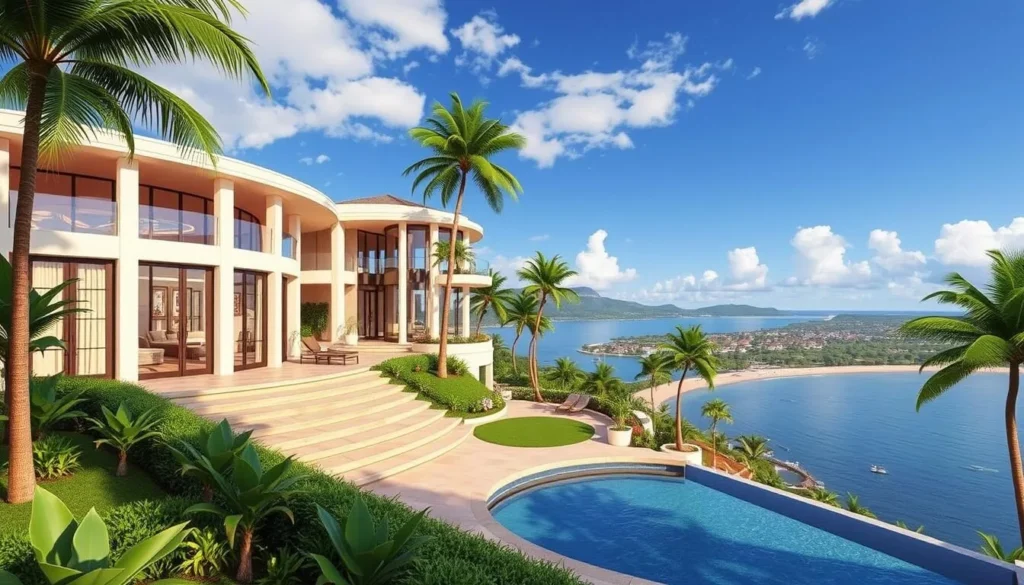
Accommodation in Equatorial Guinea is primarily concentrated in major cities like Malabo and Bata. When visiting Oyala, you’ll find that your accommodation choices extend far beyond the well-known Grand Hotel Djibloho. Luxury accommodations in Oyala include government-built hotels designed to host officials and business travelers. These hotels offer high-end amenities but often operate below capacity due to limited tourism.
Mid-range hotel options are emerging as development continues, providing comfortable accommodations with standard amenities at more moderate prices. You’ll find accommodation options in Equatorial Guinea concentrated primarily in Malabo and Bata, with limited choices in smaller towns and rural areas.
- Luxury options include international-standard hotels like the Sofitel Malabo President Palace and Grand Hotel Djibloho.
- Mid-range hotels are available in major cities, though standards may differ.
- Budget accommodations are limited but can be found in larger towns.
Conclusion: Why Equatorial Guinea Should Be on Your Travel List
As you conclude your visit to Equatorial Guinea, the memories of its pristine environments and cultural experiences will stay with you. This country is a true gem, offering a unique blend of nature, culture, and adventure. You’ll have discovered the beauty of Equatorial Guinea, from lush rainforests to stunning waterfalls, and experienced the rich cultural heritage of this place.
By visiting Equatorial Guinea, you’ve ventured off the beaten path and discovered a new country full of surprises. With its diverse landscapes and rich heritage, this destination offers an unforgettable travel experience. In conclusion, Equatorial Guinea is a must-visit destination for adventurous travelers seeking authentic experiences and unspoiled natural beauty.
The above is subject to change.
Check back often to TRAVEL.COM for the latest travel tips and deals.
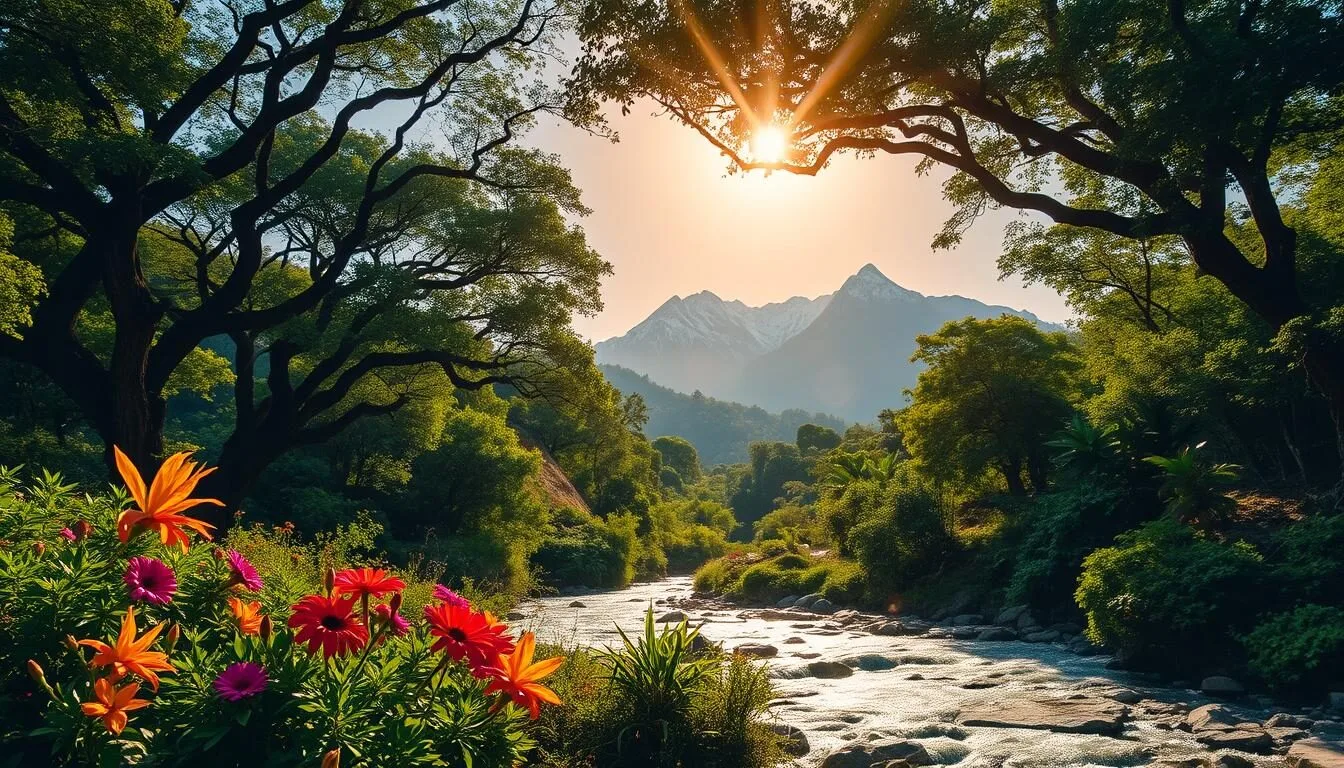
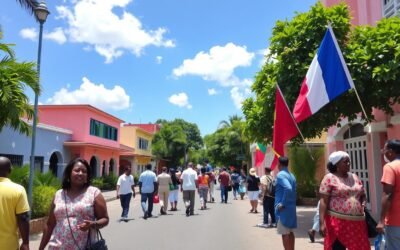
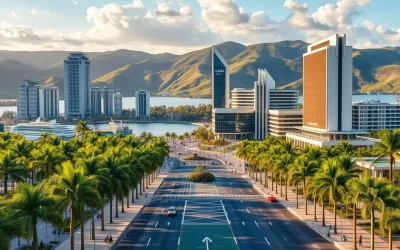
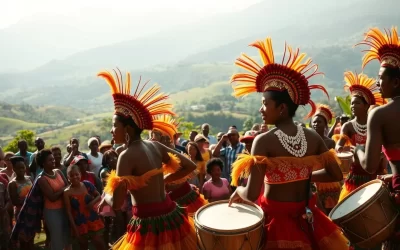
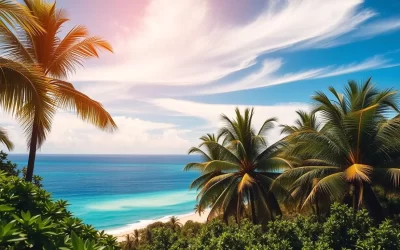

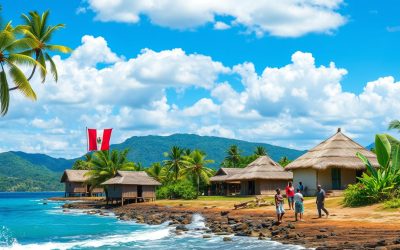
0 Comments